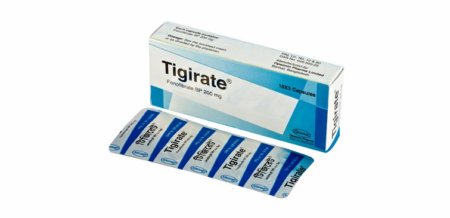
Type:10 Capsules
Generic Name:Fenofibrate
Manufacturer:Opsonin Pharma Limited
Price:৳70.60
Hyperlipidemia, Hypercholesterolaemia, Hypertriglyceridaemia
Should be taken with food.
Oral Hypercholesterolemia, Mixed dyslipidemia, Hypertriglyceridemia Tablet: 40-160mg once daily. Capsule: 200mg once daily. Hepatic impairment: Contraindicated.
Safety and efficacy not established
Renal impairment Mild-Moderate: Initial: lower dose Severe: contraindicated
Hypersensitivity; severe hepatic and renal impairment. Unexplained persistent liver function abnormality and primary biliary cirrhosis; preexisting gall bladder disease. Pregnancy, lactation.
Fenofibrate, a fibric acid derivative, lowers plasma triglyceride by activating lipoprotein lipase thus increasing catabolism of VLDL w/ consequent increase in HDL levels.
Renal or hepatic impairment. Monitor LFTs and blood counts regularly. Increased risk of cholelithiasis, pancreatitis, skeletal muscle effects. Withdraw treatment if no adequate response after 2 mth of treatment at max recommended dose. Lactation: Unknown if excreted in breast milk; not recommended
1-10% Abdominal pain (4.6%),Back pain (3.4%),Increased AST (3.4%),Headache (3.2%),Increased ALT (3%),Increased CPK (3%),Nausea (2.3%),Constipation (2.1%) Potentially Fatal: Hepatitis, cholecystitis.
Pregnancy Limited available data with fenofibrate use in pregnant women are insufficient to determine a drug-associated risk of major birth defects, miscarriage or adverse maternal or fetal outcomes Animal data In animal reproduction studies, no evidence of embryo-fetal toxicity was observed with oral administration in rats and rabbits during organogenesis at doses less than or equivalent to the maximum recommended clinical dose of 120 mg daily, based on body surface area (mg/m2) Adverse reproductive outcomes occurred at higher doses in presence of maternal toxicity; drug should be used during pregnancy only if potential benefit justifies potential risk to fetus Lactation There is no available information on presence of drug in human milk, effects on the breastfed infant, or on milk production; drug is present in milk of rats, and likely to be present in human milk; because of potential for serious adverse reactions in breastfed infants, such as disruption of infant lipid metabolism, women should not breastfeed during treatment and for 5 days after final dose
Decreased absorption w/ bile acid sequestrants (e.g. colestyramine). May increase risk of ciclosporin-induced nephrotoxicity. Increased risk of muscle toxicity w/ HMG-CoA reductase inhibitors (e.g. simvastatin). May increase risk of bleeding w/ oral anticoagulants.